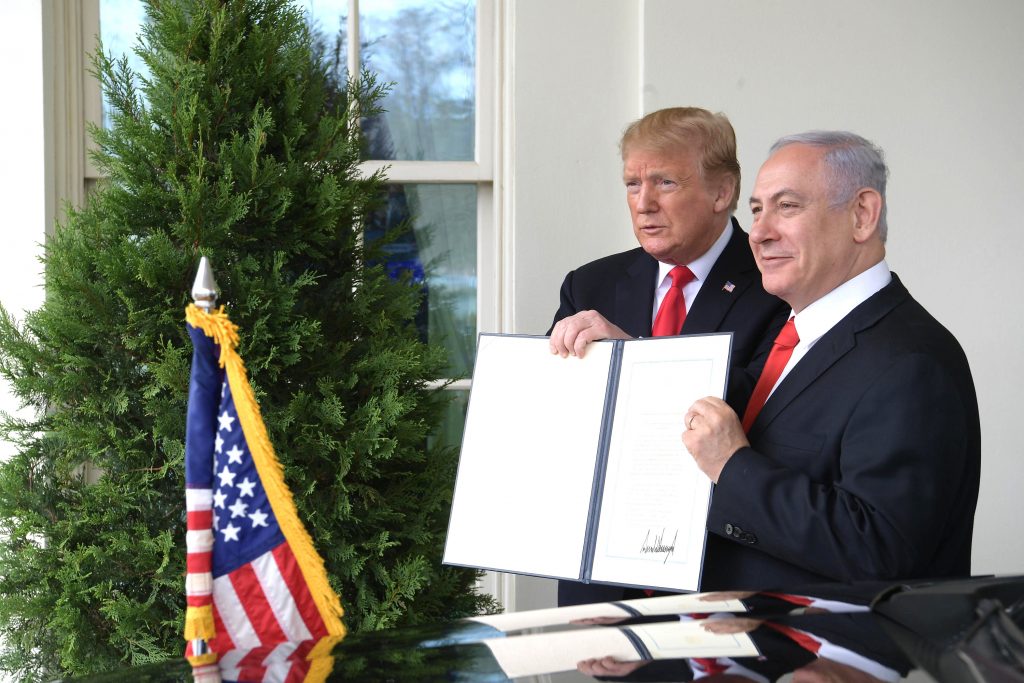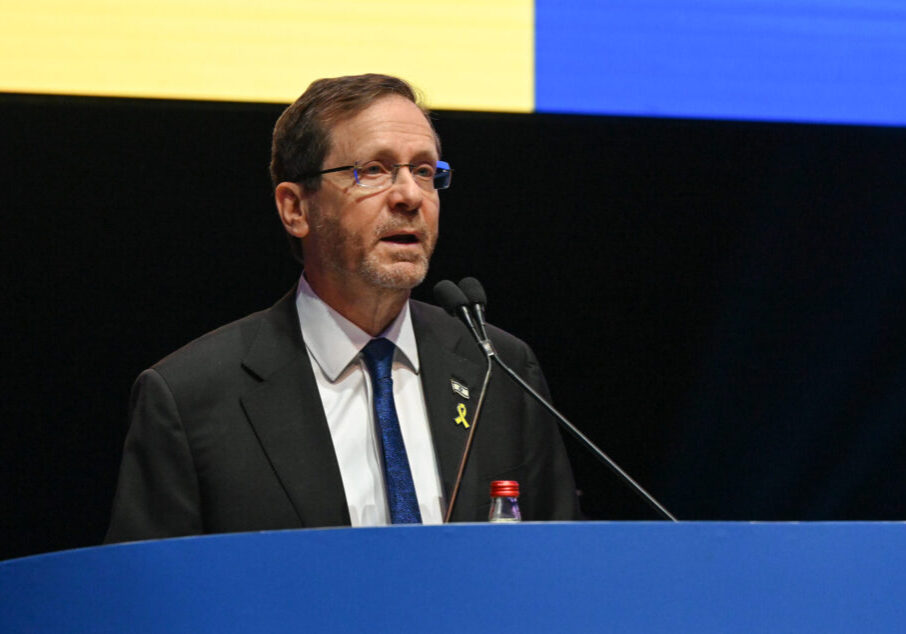Australia/Israel Review
Media Microscope: Height of Folly?
Apr 29, 2019 | Allon Lee

US President Donald Trump’s decision to recognise Israeli sovereignty over the Golan Heights on March 25 and Benjamin Netanyahu’s promise to extend sovereignty over West Bank settlements dominated coverage in the final weeks leading up to Israeli elections on April 9.
SBS TV “World News” (March 22) noted that “the Arab League condemned the decision, describing it as ‘completely beyond international law.’”
SBS online (March 26) ran a balanced report on Trump’s recognition, quoting Netanyahu making the important point that “Israel won the Golan Heights in a just war of self-defence.” The piece quoted academic Timothy Lynch dismissing critics of the decision, saying, “The job of Arab regimes which surround Israel is to be as outraged as possible whenever the US does something which is in Israel’s interest, we had it over Jerusalem, and we’ve seen it recurrently when Israel has sought to protect itself,” he said.
“There is a degree of hypocrisy, if you look at the Syrian Civil War which has happened just to the north of the Golan Heights, in terms of humanitarian abuses of rights, the humanitarian disaster, that’s Muslim on Muslim although different sects – that should be the central concern of Arab regimes.”
On ABC Radio “World Today” (March 26), David Mack, former US Ambassador to the UAE, opposed recognition and questioned the Golan’s “strategic importance… in the age of satellites and long-range rockets. You don’t need to put artillery on the Golan Heights to threaten Israel anymore.” The recent discovery of a Hezbollah cell on the Syrian controlled side of the border allegedly scouting potential attack targets in Israel disproves his claim.
Reports, such as in the Sunday Age (March 31), which recorded the Turkish and Russian opposition to recognition did not note that both countries are illegally occupying territory they seized in wars of aggression after 1967.
Whilst hardly surprising, it is a pity that the historical international law debates about territorial acquisition in war were not canvassed in media reports. In 1967, when Israel captured the Golan, many international jurists accepted that a country which captured territory in a defensive war had a legitimate case to keep it.
The Australian (March 27) welcomed Trump’s recognition, saying “the Syrian civil war had radically changed strategic challenges in the region. It is no longer realistic for the Jewish state to be expected to go back to pre-1967 borders.”
AIJAC guest Michael Doran told ABC TV “The World” (April 1) that the move was a “recognition of reality” and that Arab leaders know “Israelis are never going to [give] back the Golan.”
Falling during the week of the Australian federal budget, media coverage of Netanyahu’s settlement pledge was muted.
ABC Radio “AM” listeners (April 8) might have been left a little confused as to what Netanyahu had actually promised.
Reporter Sarah Whyte said, “As Israelis prepare to go to the polls tomorrow to vote in the national election, Prime Minister Benjamin Netanyahu has made a last-minute appeal to nationalist voters, promoting Jewish settlement expansion.”
But the story only quoted Netanyahu saying he would gradually “extend Israeli sovereignty and I don’t distinguish between settlement blocs and the isolated settlements” – nothing about settlement expansion.
Nine’s four major newspapers all shared the same report by New York Times Middle East correspondent David Halbfinger but split on the headline.
The Age and the Australian Financial Review went with factually incorrect headlines. “Israel PM to annex West Bank” and “Netanyahu vows to annex West Bank,” respectively.
The Canberra Times and Sydney Morning Herald used the factually unproblematic title “Israel PM’s West Bank promise.”
Halbfinger wrote “applying sovereignty to Israeli settlements on West Bank land would leave the Palestinians at best with an archipelago of disconnected territory.”
A West Australian report, written by the Associated Press’ Middle East news director Karin Laub, was misleadingly titled “PM pledge to annex West Bank” and included the claim that “an Israeli annexation of large parts of the West Bank is bound to snuff out any last flicker of hope for an Israeli-Palestinian deal on the terms of a Palestinian state on lands Israel captured in 1967”.
Despite Netanyahu’s promise lacking detail, Halbfinger’s and Laub’s reports were focused on maximalist territorial consequences.
In fact, Israeli settlements take up less than two percent of the West Bank, a point not made in any of the relevant reports.
Tags: Australia, Israel, Media/ Academia






